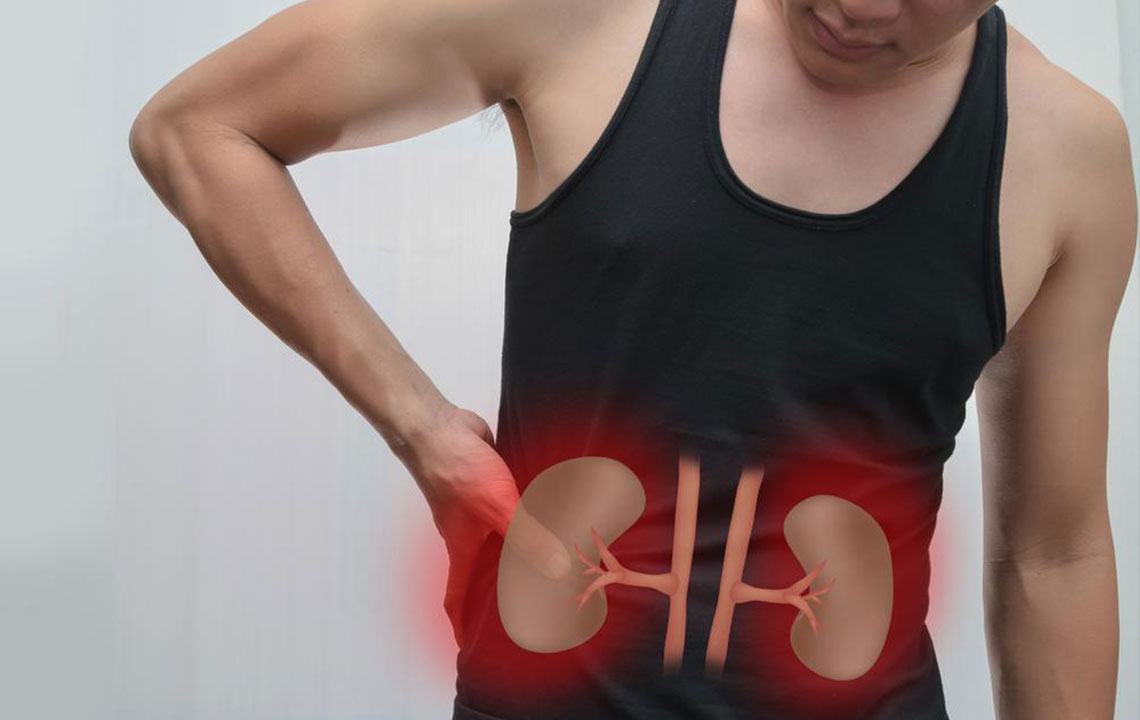Kidney Failure – Causes and Symptoms
Kidneys are the filtering units of the human body. They filter the blood and expel the toxins which are flushed out of the body during urination. At times kidneys fail to perform their function. They become incapable to filer the waste from the blood. The kidney health deteriorates along with several other factors. Kidney trauma, chronic disease medications, and pollutants can aggravate the problem and cause complete kidney failure. This results in the overloading of toxins in the body.

Kidney failure symptoms
There are different symptoms of kidney failure. In the beginning, the kidney failure symptoms can’t be traced. As the kidneys weaken, symptoms such as reduced RBC production, imbalance of electrolytes, and uneasy waste clearance from the body arise.
Some of the main kidney failure symptoms are:
- Lethargy, fatigue, and weakness
- Regular nausea and drowsiness
- Urine reduction
- Short breath
- Inflammation in ankles, feet, and legs caused by fluid retention
- Pain in chest
- Confusion
- Less appetite
- Congestive heart failure
- Metabolic acidosis
- High potassium levels in blood (hyperkalemia)
- High uric levels in the blood
- Irregular heartbeat rhythm
- Coma
Causes of kidney failure
Acute and chronic health problems result in the failure of the kidney. Some of the likely causes are:
Acute renal failure: It occurs in quick successions when kidneys fail to function properly. Every human has two kidneys. If one kidney fails it can be operated and removed from the body. Single kidney continues to function normally. However, if both the kidneys fail, transplantation of kidney is the only viable solution.
Pre-renal kidney failure: The pre-renal kidney failure is caused by the inefficient blood supply to the kidney. The pre-renal kidney failure symptoms are dehydration, fever, low blood volumes (hypovolemia), sweating, water loss and improper blood flow.
Sepsis: Infections in the body affect the immune system. It causes inflammation and brings the kidney functioning to halt. Sepsis occurs due to high medication dosage. Anti-inflammatory drugs, antibiotics, lithium, and iodine-containing drugs are responsible for sepsis.
Rhabdomyolysis: The damaged muscles fibers block the cleaning system of the kidneys. The muscle breakdown may occur due to burns, injuries and trauma and some specific medications.
Multiple Myeloma: Inflammation caused by disease such as Goodpasture syndrome affects the normal functioning of kidneys and inhibits the filtering function resulting in multiple myeloma.
Hemolytic uremic syndrome: The reduced count of red blood cells causes the haemolytic uremic syndrome. Infections, pregnancy, and certain medications can bring up the problem.
Post-renal Kidney failure: The post renal kidney failures are caused by several factors mentioned below:
Prostate cancer which clogs the urethra and stops the emptying of bladder
Abdomen Tumours that block the ureters
The blocking of the bladder results in back pressure. The urine accumulates in the kidneys along with the continuous production of urine. High urine amounts cause the kidneys to damage.
If an individual has only one kidney, the presence of kidney stones may cause it to fail.
Chronic renal failure: Chronic renal failure is caused by chronic (long-term existing) health complications. Some of the causes are hypertension, diabetes, and glomerulonephritis. Kidney stones, Alport’s disease, nephrotic syndrome and prostate diseases are some other likely causes.
Lack of blood flow to the kidneys: Health complications such as burns, heart attack or liver failure, dehydration can decrease the blood flow to the kidneys which could cause an accidental kidney failure.
Problems with urine elimination: Improper elimination of urine results in the build-up of kidneys. Different kinds of cancers such as bladder, colon, prostate, and cervical block the urine passageways. Damaged nerves and blood clots interrupt the normal urination and cause severe problems.
The kidney failure symptoms are be diagnosed by different tests. Some of the tests used by the doctors are:
Urinalysis: The urine sample of the patient is taken for testing to determine the sugar or protein level in the urine. Urinary sediment examination is done to check the count of RBC, WBC, and bacteria in the urine.
Blood samples: The blood samples are tested to find out the amounts of creatinine and blood urea nitrogen. High levels in these are likely chances of kidney failure.
Urine volume measurements: Measuring the urine levels is the easiest method to diagnose the kidney health. Low urine levels probably indicate urinary blockage which could lead to kidney failure.
Imaging: Imaging techniques such as CT scans, ultrasound and MRIs are used to capture the images of kidney and the urinary tracts. This facilitates the specialists to assess the kidney abnormalities if any.
Kidney tissue sample: Kidney biopsy is conducted to take the tissue sample. The tissue samples are checked for infections and abnormalities. A biopsy needle is inserted into the skin to the kidney to extract the sample.
Follow the doctor’s recommendation and medication and adopt a healthy lifestyle to keep safe if you find kidney failure symptoms.


